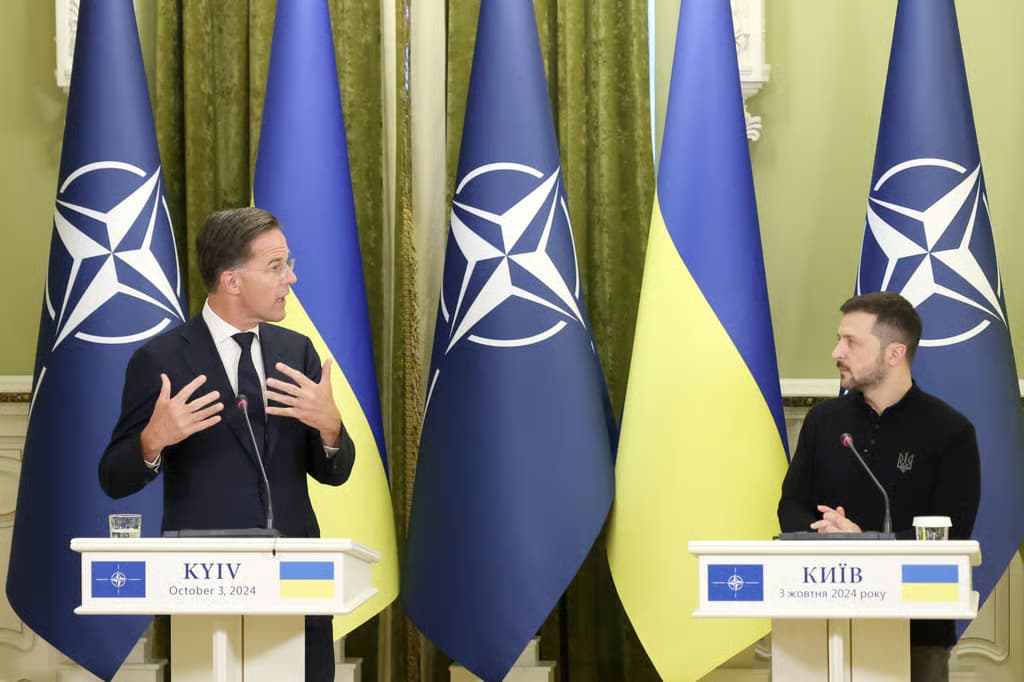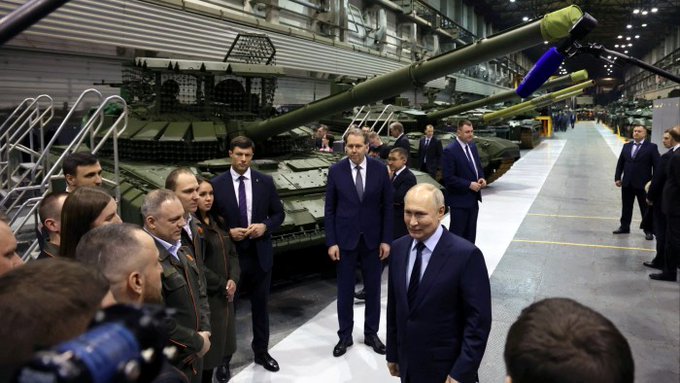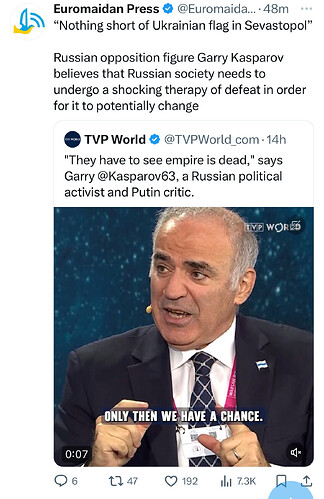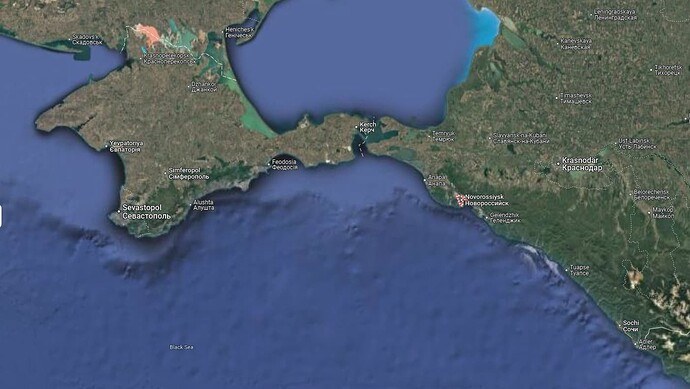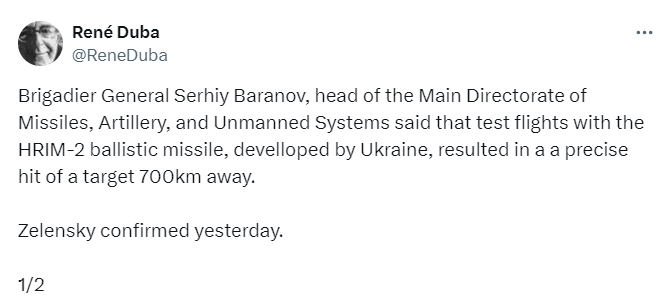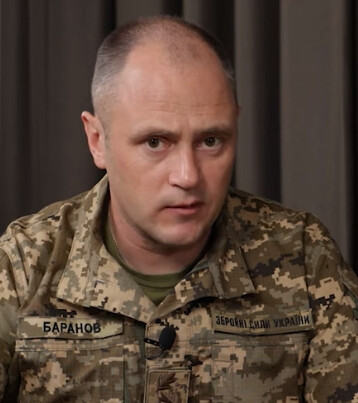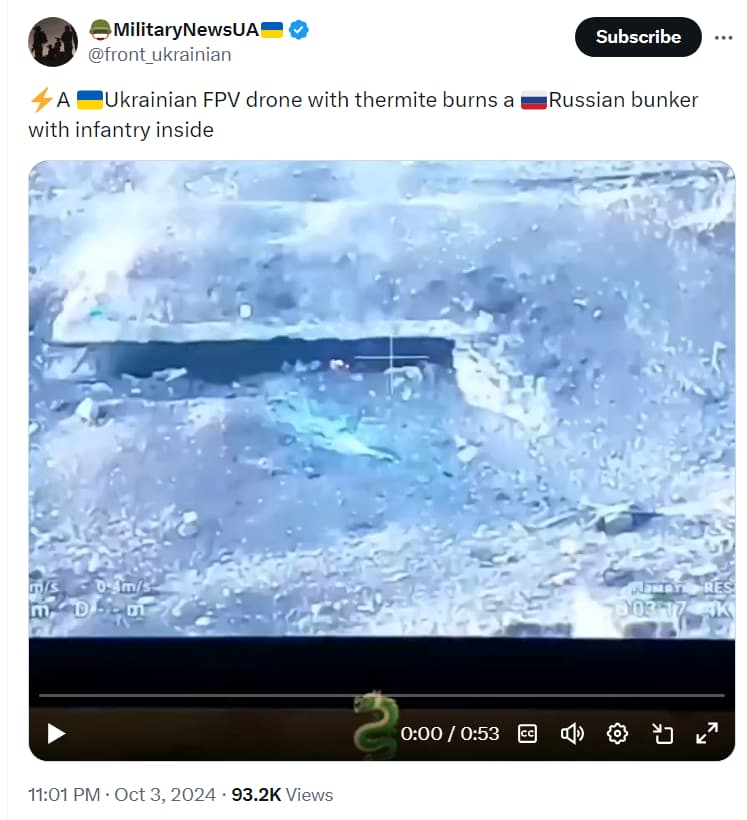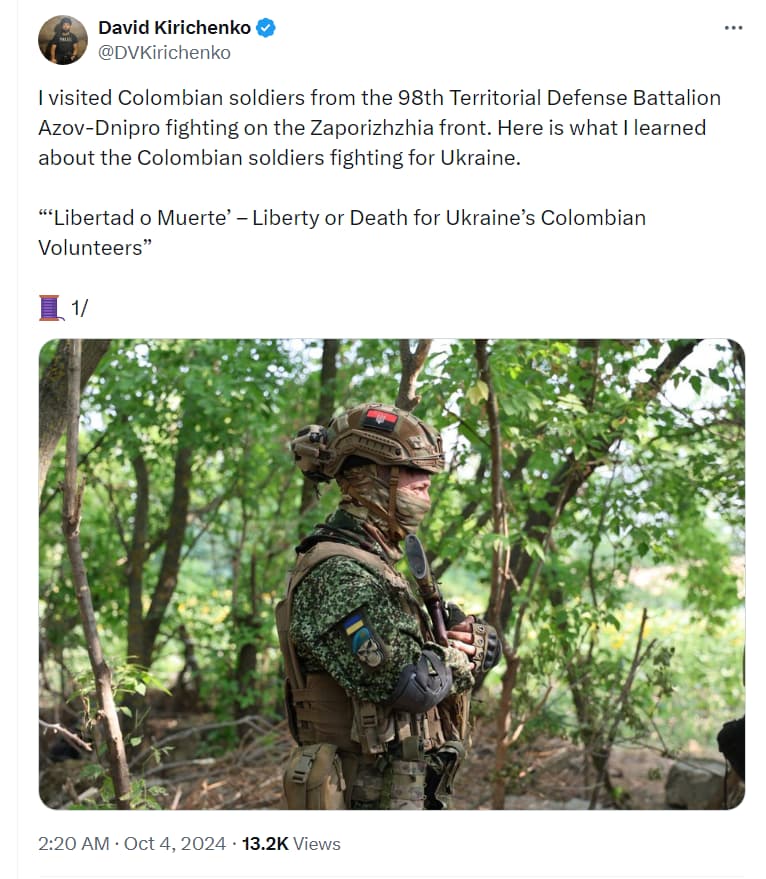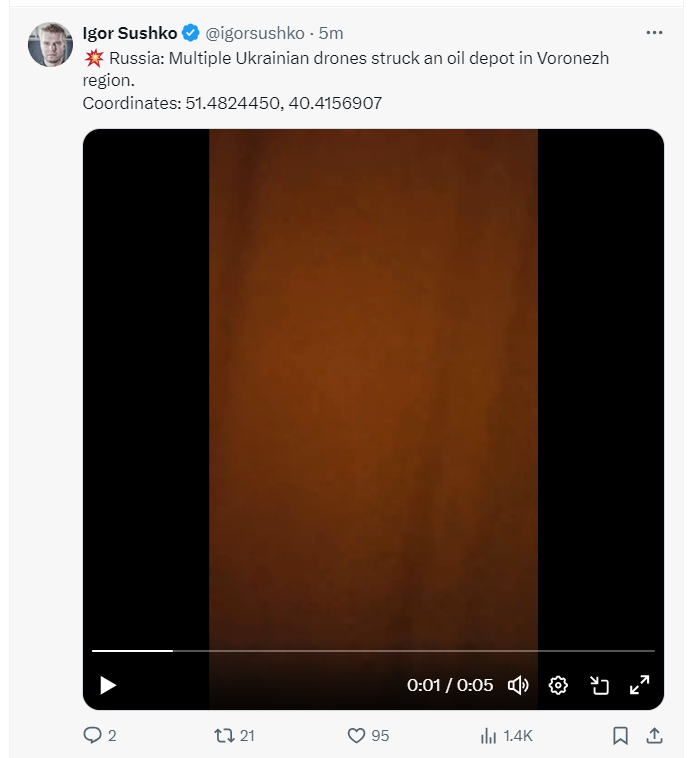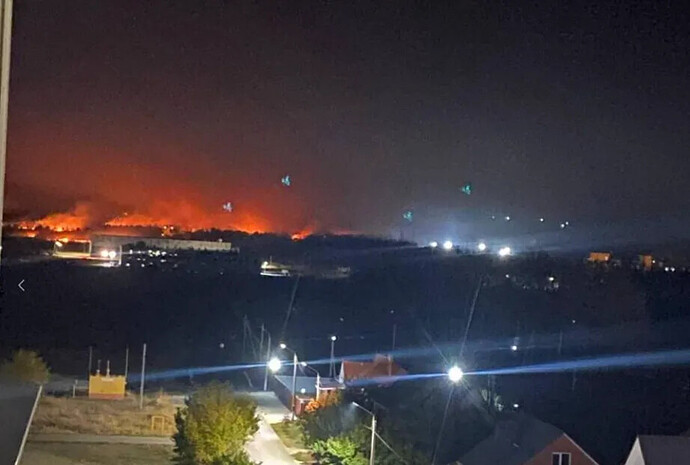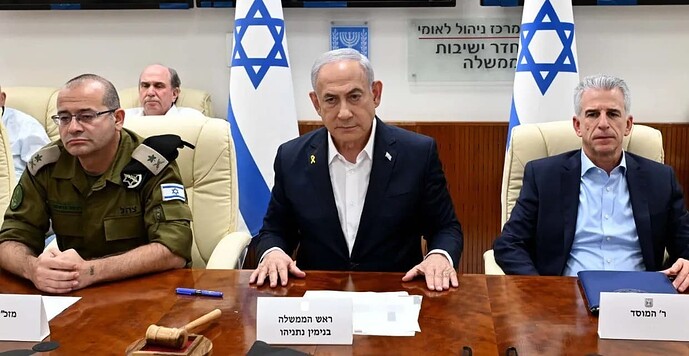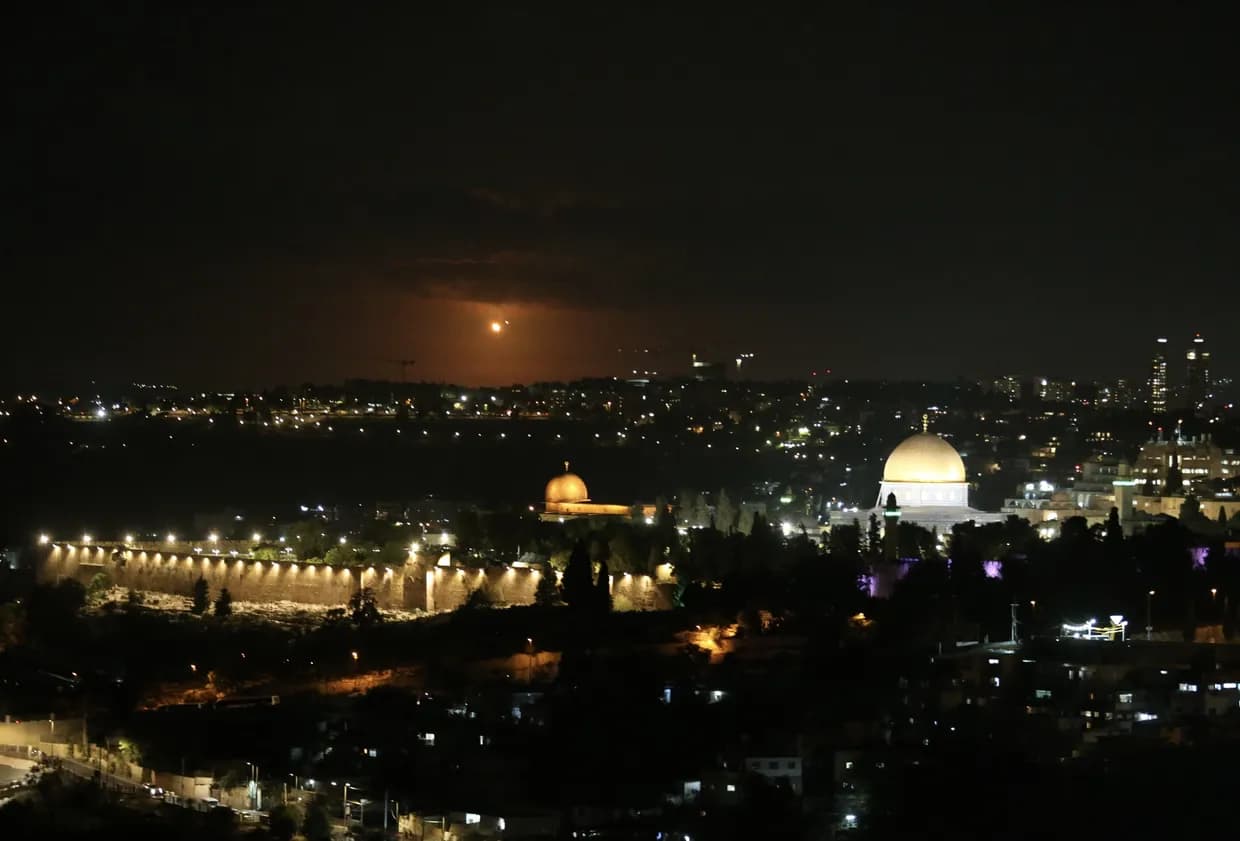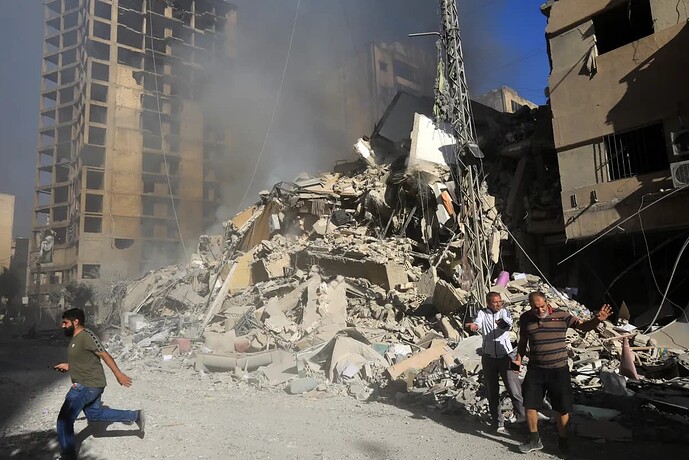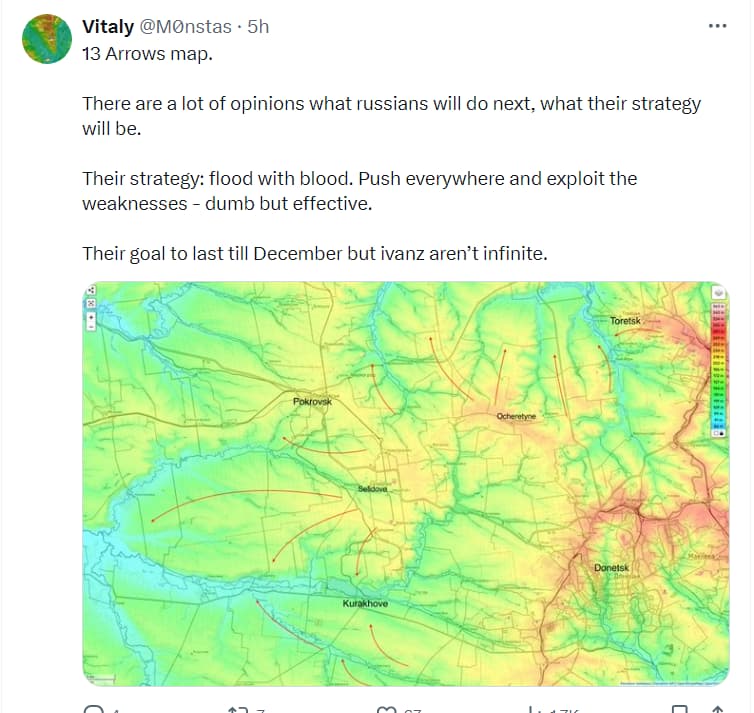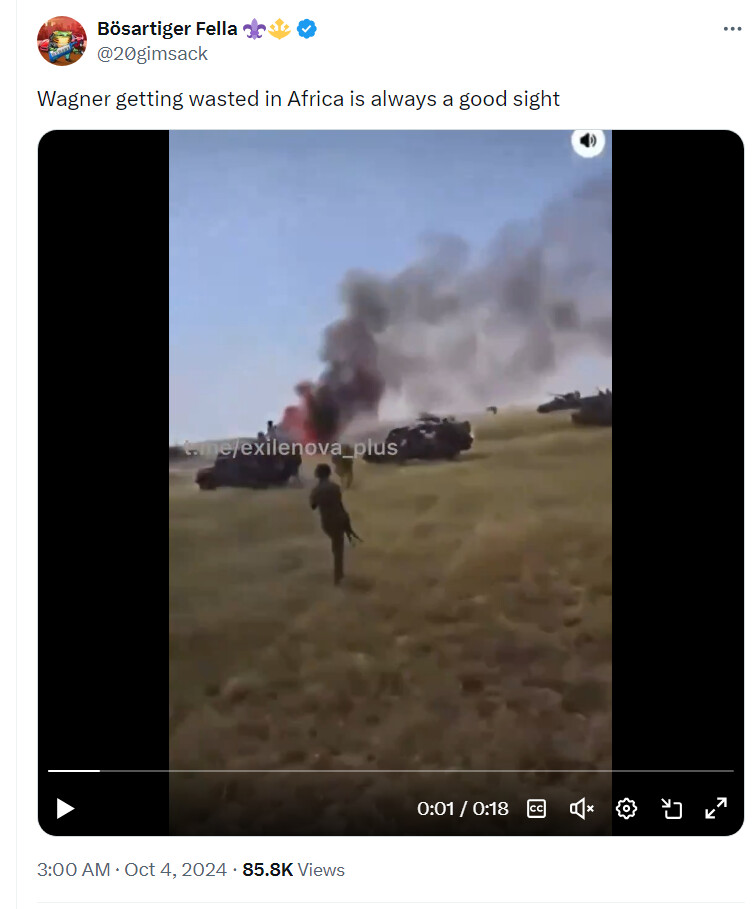We asked experts what the Middle East escalation could mean for Ukraine
October 3, 2024 9:44 PM
7 min read
Fears of a broader war in the Middle East have been mounting since Iran launched its largest-ever aerial attack against Israel on Oct. 1, with Israeli Prime Minister Benjamin Netanyahu vowing to retaliate while waging a ground incursion into Lebanon.
Ukrainians are anxiously following the latest developments of the years-long conflict, which escalated following Hamas’ Oct. 7 attack last year, as they assess how the situation could impact the world’s attention and support of Kyiv’s defense against Russia. The U.S. is the largest provider of military aid to both Israel and Ukraine, while Iran remains one of Moscow’s closest allies.
In recent months, Ukrainian officials have intensified efforts to secure long-term U.S. defense assistance and gain Washington’s approval for long-range strikes on Russian territory ahead of the U.S. presidential election in November, which could influence future aid. Meanwhile, Tehran and Moscow have strengthened their military and political ties, with Iran allegedly supplying hundreds of ballistic missiles to Russia.
On the evening of Oct. 1, Iran’s Islamic Revolutionary Guard Corps (IRGC) launched nearly 200 missiles, including hypersonic ones, at Israel, most of which were intercepted, according to the Israeli military. IRGC said the attack was in retaliation for the recent killings of one of its top commanders and leaders of Hezbollah and Hamas. IRGC claimed that 90% of its projectiles struck their intended targets.
Iranian government spokesperson Fatemeh Mohajerani said on Oct. 2 that Tehran was acting in self-defense and had no interest in a wider war in the Middle East, as cited by CNN. However, Iran’s military leadership warned of broader strikes if Israel chose to retaliate.
Israeli Prime Minister Benjamin Netanyahu (C) holds a meeting with the Security Cabinet after Iran’s missile attacks on Israel in West Jerusalem on Oct. 1, 2024. Director of the Mossad David Barnea (R) also attended the meeting. (Avi Ohayon (GPO) / Handout/Anadolu via Getty Images)
Netanyahu said Iran had made a “big mistake” and “will pay” for it, while Israel Defense Forces (IDF) spokesperson Daniel Haggari revealed that IDF already had plans for a response and would operate “at the place and time we decide.” The U.S., which assisted in intercepting Iranian missiles alongside the U.K. forces, reaffirmed its support for Israel. Several Western nations, including France, Germany, and Spain, condemned the Iranian attack, while the U.N. Secretary-General called for a ceasefire.
Meanwhile, Israel continues its attacks on Lebanon, Gaza, and Yemen.
We asked Ukrainian and foreign experts what they thought a potential large-scale war in the Middle East could mean for Ukraine, whether it could divert Western resources and attention, as well as worsen Israel’s relations with Russia.
Editor’s note: The experts’ responses were shortened and edited for clarity.
Volodymyr Ohryzko
a Ukrainian diplomat, former foreign minister of Ukraine (2007-2009)
"This escalation (in the Middle East), which we are currently observing, will divert the attention of political leaders and the media (from Ukraine). If Iran continues its aggression and Israel begins to respond, further escalation is inevitable, and we must be ready for it. However, I do not see a direct connection between what is happening with Israel and Iran and Western aid to Ukraine… What we should receive (from the U.S.) is financed from completely different sources than what the U.S. could allocate to Israel.
“If Iran continues its aggression and Israel begins to respond, further escalation is inevitable.”
"Russia can hardly help Iran (in the conflict) because it has nothing to offer. It is dependent on the supply of weapons from North Korea and Iran itself… Russia has clearly chosen a side, and it is not the Israeli side. I hope that Israel will finally draw the right conclusions from this because Netanyahu has always wanted to be nice to Moscow and, at the same time, did not refuse to at least somehow help Kyiv. Now, I think he will have to choose a side and not pretend it is possible to ‘sit on two chairs’ anymore.
“The main role the U.S. will play here will depend on whether they want to put an end to the Iranian issue forever. We constantly hear conversations about Iran being one step closer to a nuclear bomb… If the logic prevailed in the U.S. that the countries of the ‘Axis of Evil’ should be dealt with seriously, and not just by expressing concern… I think the situation as a whole would be much more positive, including for Ukraine. If Iran were excluded from the chain of arms supplies to Russia, it would be much easier for us.”
Iliya Kusa
an expert on international politics and the Middle East at the Ukrainian Institute for the Future
"Any destabilization in the Middle East will have a negative impact on the general security situation, including the security of the European Union.
"First, (a larger-scale) war, especially if it drags on, could lead to a temporary increase in oil prices, which would work in Russia’s favor. Secondly, a major war will divert the resources, energy, and attention of the EU and NATO countries (from Ukraine) as they will be forced to use some of the resources to minimize risks that may arise, including those associated with a potential new wave of refugees from the Middle East. Thirdly, from the point of view of international security and international politics, I do not see critical risks for Russia because, despite the vulnerability of their positions in Syria, a (larger) war (in the Middle East) will be helpful for them. They would benefit from chaos and destabilization that would distract the EU and NATO countries from Ukraine. Then (Russia) will be able to re-up its efforts to push Western partners (to pressure) Ukraine (to negotiate).
“From the point of view of Ukraine’s strategic interests, it would be better if there was no war in the Middle East and the Israeli-Iranian escalation ended with an exchange of aerial strikes, as was the case in April, and then with freezing of the conflict.”
Rockets fired from Iran to Israel are seen over Jerusalem, Israel, on Oct.1, 2024. The Israeli army announced that missiles were fired from Iran towards Israel, and sirens were heard across the country, especially in Tel Aviv. (Saeed Qaq/Anadolu via Getty Images)
Residents walk in front of a building still smoldering after it was leveled in an overnight Israeli airstrike that targeted the neighborhood of Moawwad in Beirut’s southern suburbs, Lebanon, on Oct. 3, 2024. (AFP via Getty Images)
Omar Oscar Ashour
professor of military studies at the University of Exeter and the Doha Institute for Graduate Studies
"Israel and Russia have their own agreements and disagreements, mainly the agreements were vis-a-vis Syria, the Russian community in Israel and migration from Russia to Israel. You will likely see (Israel’s) attempt to try and break down this Iranian-Russian cooperation that may affect Ukraine.
"The relations between Russia and Iran in Syria are partly alliance, partly competition… The Russians were not intercepting (Israeli strikes) on Syria because the understanding was that Israel was hitting just Iranian targets, not Russian ones. I’m sure Russia wanted to get something back from Israel (for example), not to help Ukraine. That agreement will be tested if there is a full-scale war (in the Middle East).
“The relations between Russia and Iran in Syria are partly alliance, partly competition…”
“Iranians, of course, will be pressuring for Russian help. Israel will be pressuring, too, trying to give Russia something extra to stay away.”
Vitaly Portnikov
a Ukrainian journalist and political commentator
"I would not draw direct parallels here. The allies’ support for Ukraine definitely does not depend on what is happening in the Middle East. Such a war can redirect media attention, but it should be remembered that the Russian-Ukrainian (full-scale) war has been going on for more than 2.5 years, and people have gotten used to information about it, regardless of whether new conflicts emerge. It (a larger war in the Middle East) would also not affect (Western) military aid (to Ukraine) because it is financed from a different budget.
"Of course, a lot depends on what the Israeli response (to the Iranian strikes) would be. If it targets the Iranian oil refining industry, there will be an increase in oil prices, but we are already observing fluctuations in oil prices, and there is no sign of them decreasing.
“(The impact of a potential major war in the Middle East on Ukraine) depends on the scale of involvement (of the parties to the conflict and their allies). The American army will unlikely fight in Iran. The U.S. might, at most, agree with Israel on missile or other strikes against Iran. Russia will definitely not participate in the defense of Iran against these strikes with its own missiles and will not intervene in this conflict directly.”
